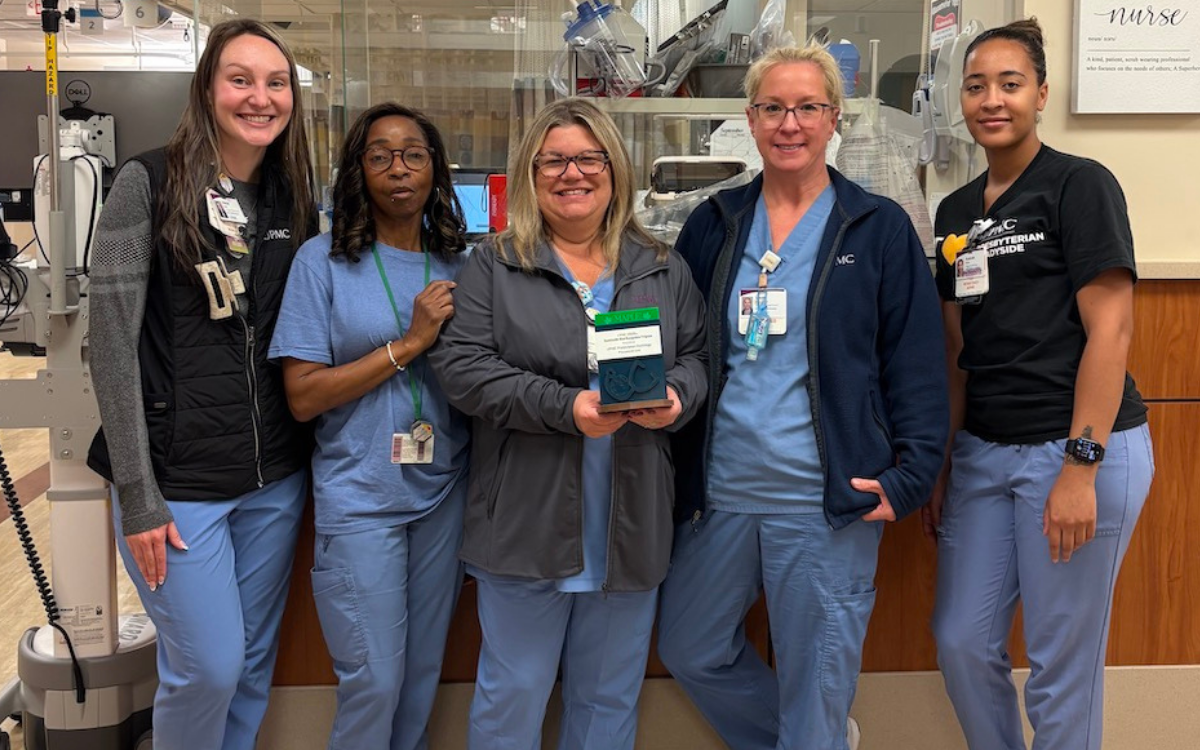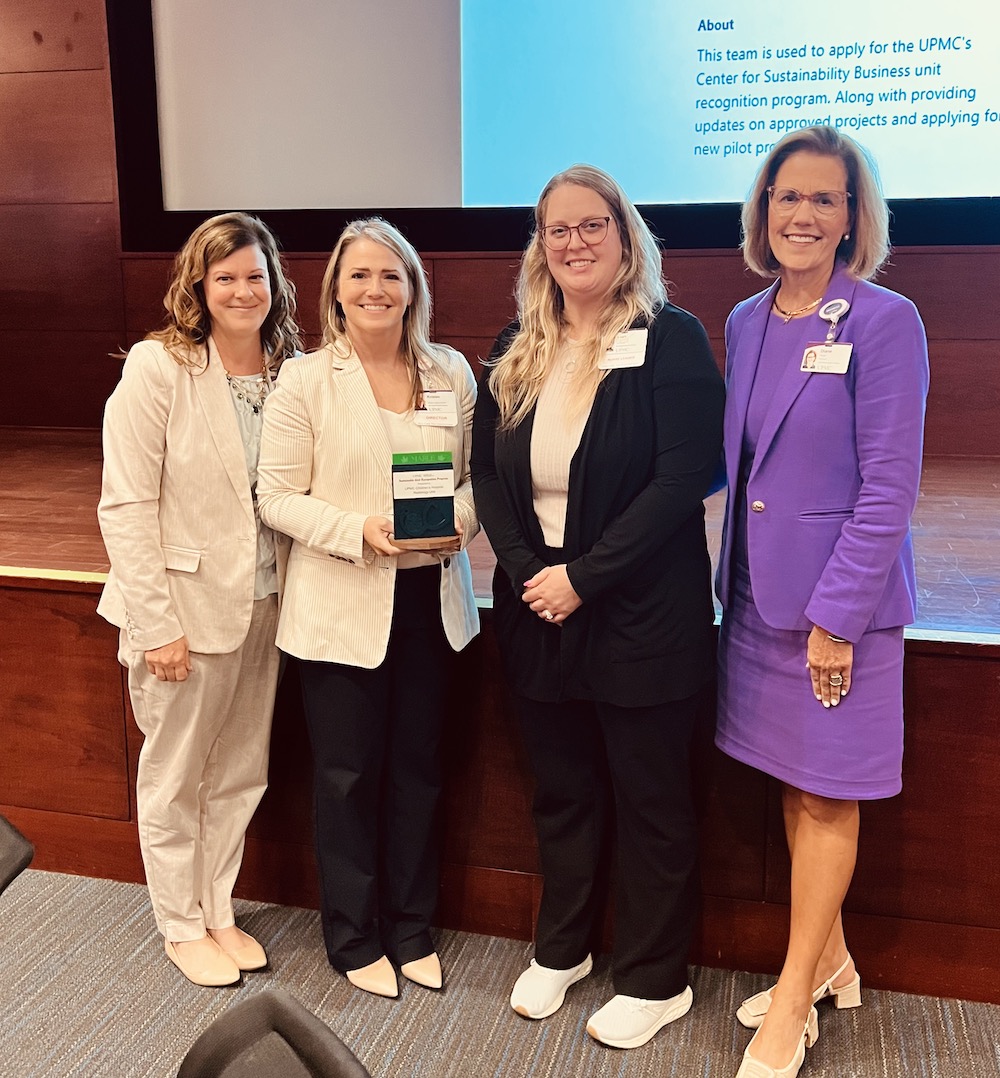
SUSTAINABILITY SPOTLIGHT
UPMC’s Empowerment of Clinical Staff to Tackle Sustainability
 November 20, 2025
November 20, 2025
UPMC’s commitment to high-quality healthcare is inseparable from its responsibility to protect the environment and the communities it serves. Guided by the principle of “do no harm,” UPMC’s clinicians recognize that reducing pollution and greenhouse gas emissions is essential not only for planetary health but also for the well-being of patients. UPMC is working to reduce its environmental footprint to keep the communities healthier, as pollution is linked to a range of health issues, like asthma and cancer. Climate change also disproportionately affects vulnerable populations such as children, the elderly, and those with chronic conditions. With healthcare estimated to account for over eight percent of greenhouse gas emissions nationwide, UPMC is taking a holistic approach to sustainability — enabling and empowering clinicians to contribute to meaningful change.
Telehealth: Expanding Access and Reducing Emissions
Telehealth medicine at UPMC exemplifies how innovation can simultaneously improve patient care and reduce environmental impact. By enabling patients to connect with clinicians from any location, telemedicine increases access to quality care while minimizing the need for travel. This not only lowers patient costs but also prevents unnecessary transfers between facilities for specialized care. Telehealth visits have surged, with both 2023 and 2024 seeing the number of telehealth visits over 700,000, underscoring the program’s growing impact. The environmental benefits are significant: from January 2022 to August 2024, UPMC’s telehealth program reduced patient travel by over 150 million miles.

Surgical Sustainability: Greener Operating Rooms
UPMC’s Surgical Sustainability Committee brings together passionate clinicians and administrators to pilot and implement new ideas for making operating rooms more sustainable. Initiatives include exploring alternatives to traditional surgical scrubbing, reprocessing medical devices, and standardizing waste collection in the OR. UPMC has introduced biodegradable surgical pack trays and standardized surgical packs for different procedures, reducing unnecessary waste and extra materials.

Reducing Anesthetic Gas Emissions
Recognizing the environmental impact of anesthetic gases, UPMC has implemented projects to reduce anesthetic gas use. UPMC has a purchasing ban on the anesthetic desflurane. Desflurane is 2540 times more potent as a greenhouse gas than an equivalent mass of carbon dioxide. This makes it one of the most potent greenhouse gases. UPMC also reduces anesthetic gas waste by administering anesthetic at a low flow rate which allows patients to absorb a higher percentage of gas and reduce atmospheric gas waste. Additionally, some hospitals have transitioned from large 50-pound nitrous oxide tanks to smaller canisters attached directly to anesthesia carts, decreasing waste and ensuring more efficient use of resources.
Recognizing Clinicians Who Lead Sustainability
UPMC’s Center for Sustainability recognizes clinical units for their sustainability work. This program enables UPMC clinicians who want to help the planet to implement projects that decrease waste. It also gives employees the opportunity to generate their own ideas, which can lead to system wide adoption. Notably, the radiology departments at UPMC Presbyterian and UPMC Children’s were among the first to receive the recognition by switching to reusable blood pressure cuffs—demonstrating how small changes can yield significant environmental benefits. At Presbyterian Hospital, the reusable blood pressure cuff initiative reduced monthly purchases by 89% avoiding 3,310 single use blood pressure cuffs and preventing 834 kg CO2e were prevented over a 9 month period. While at Children’s Hospital the same initiative drove a 50% reduction in monthly purchases with 3,338 less single use blood pressure cuffs landfilled.
Conclusion: A Shared Commitment
UPMC’s holistic approach to sustainability reflects its dedication to reducing negative environmental impacts while delivering exceptional patient care. By empowering clinicians, embracing innovation, and fostering partnerships, UPMC is building a healthier, more resilient future for its patients, their communities and the planet.

Leave A Comment